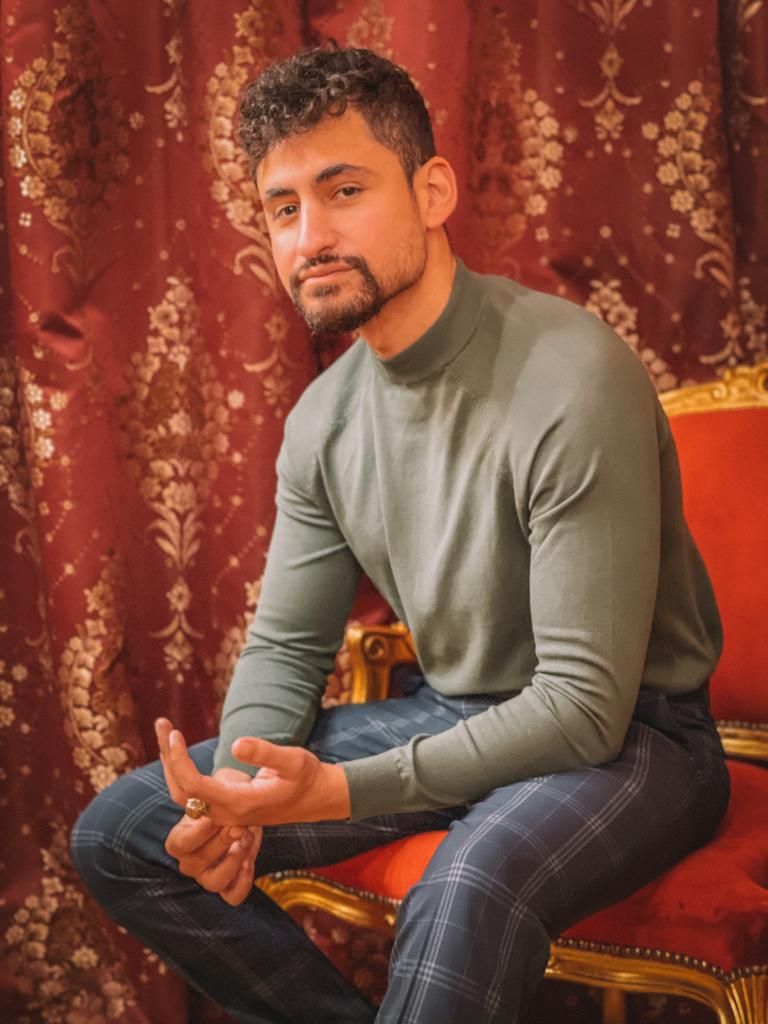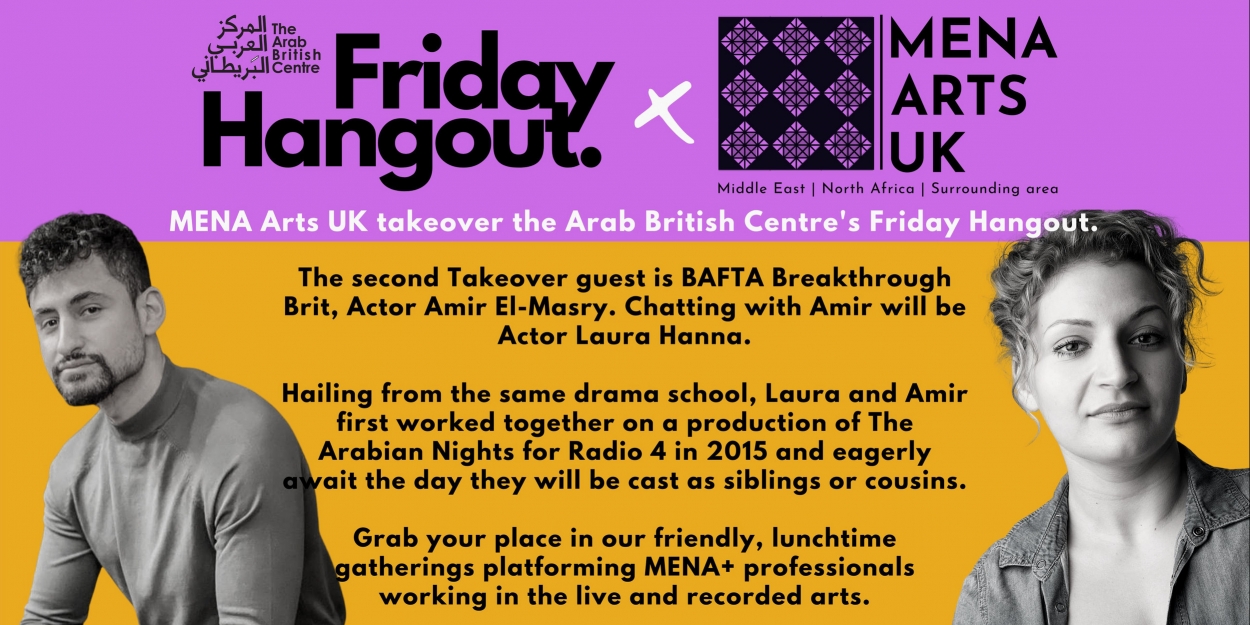
The Friday Hangout talk series is back in partnership with MENA Arts UK, the organisation of arts professionals from the Middle East, North Africa and surrounding areas who have been gathering for some while on an informal basis to discuss their work and answer live questions from the public. Guests this year have included the filmmaker Sally El Hosaini and playwright Abi Zakarian; the British Egyptian actor Amir El-Masry will be up this week and sets his appearance in context below.
Ah, COVID-19: who could have predicted the damage and disruption you would cause? I'm a big fan of The Royal Court and after working there in 2017 on a play called Goats (with seven real adorable goats, who stole the show every night), I was really looking forward to treading those boards again last spring in Sami Ibrahim's new play Two Palestinians Go Dogging, directed by Omar Elerian.
I couldn't wait to get stuck in on this controversially comical yet thought-provoking take on the Palestinian/Israeli conflict. After a week of passionate discussions prompted by the material, we had finally come to a point of momentary peace in the room until we were hit with the news that theatre around the UK was under threat of closing down.
It was left to Royal Court Artistic Director Vicky Featherstone to make the brave decision of pulling the plug before an official announcement was made: "Safety over everything'", she said as she addressed a sea of sad, tearful faces (some via iPhones). Her compassion typified a community that had welcomed me at a grassroots level and made me feel there were no limits to what I wanted to do or how I wanted to think. I learned to cut my teeth without feeling there was a glass ceiling. I was allowed to be vulnerable and to make mistakes in a safe space. For that, I will always be indebted to all the theatre practitioners that have got me to where I need to be and encouraged me to wear my heart on my sleeve.
What l love about the theatre is that, despite lockdown and funds being limited, people are still willing to use whatever spare time they have to hold readings online so as to retain just an ounce of that communal spirit: a testament once again to the type of family that the theatre breeds. What has worked for me during this pandemic and what I would strongly advise any young actor out there to do is to hold regular read-throughs over Zoom of their favourite plays so as to keep that muscle going.
With that in mind, a group of MENA+ [MENA is an English-language acronym referring to the Middle East, North Africa and the surrounding areas] actors regularly gathers to read a play by an Arab playwright and discuss how we feel about it. We're assigned roles on the spot, which helps train our sight-reading skills and gives us opportunities to play away from our normal casting brackets. Above all else, the most important thing is the benefit to our mental health, knowing that we are all in this together.
Communities like MENA Arts UK are essential not only during lockdown but for the future. I spent the first few years of my professional career trying to box myself into a category in order to survive. It felt both a blessing and a curse as I was working that I could not just be anyone I wanted to be but that such decisions were made for me. The media perpetuated a negative stereotype of Middle Eastern/North Africans for so long that it was hard for some to dissociate that perception from the reality.
 In addition, when I graduated from drama school, there were very few who looked like me. For so long I had to grapple with the idea of "do I hide my Egyptian-ness and accentuate my Britishness? Or do I lean in to what they want to see and speak in heavily accented English?" Thanks to a few casting directors, I was able to slowly just be myself and be seen for different roles. That experience allowed me to be patient and to learn that for every 10 rejections, there was one successful outcome out there waiting and ready to make a gearshift in my career.
In addition, when I graduated from drama school, there were very few who looked like me. For so long I had to grapple with the idea of "do I hide my Egyptian-ness and accentuate my Britishness? Or do I lean in to what they want to see and speak in heavily accented English?" Thanks to a few casting directors, I was able to slowly just be myself and be seen for different roles. That experience allowed me to be patient and to learn that for every 10 rejections, there was one successful outcome out there waiting and ready to make a gearshift in my career.
That has very much been true of two recent projects: Limbo (out July 30th in the UK and Ireland), my first leading role which became a festival success around the world, and an upcoming Netflix series called The One where I play a guy called Ben. Yes... just Ben. No mention of his heritage, or explanation as to why the character needed to look like me. He's just a regular guy who works in a pharmaceutical company who happens to be in love. The casting might not mean much to an onlooker, but it speaks volumes about the way the industry is slowly shifting towards more inclusion without having to justify that choice.
And so it is that I am excited to be "hanging out" with MENA Arts UK this week, talking more about my experiences in the audition process, the challenges I have had to navigate, upcoming projects I'm working on but also about what I'd like to see happen differently going forward. We've had nearly a year of the pandemic and made it this far, so moving forward is surely the only way to go.
Amir El-Masry will be interviewed by Laura Hanna at 1 pm GMT on Friday





